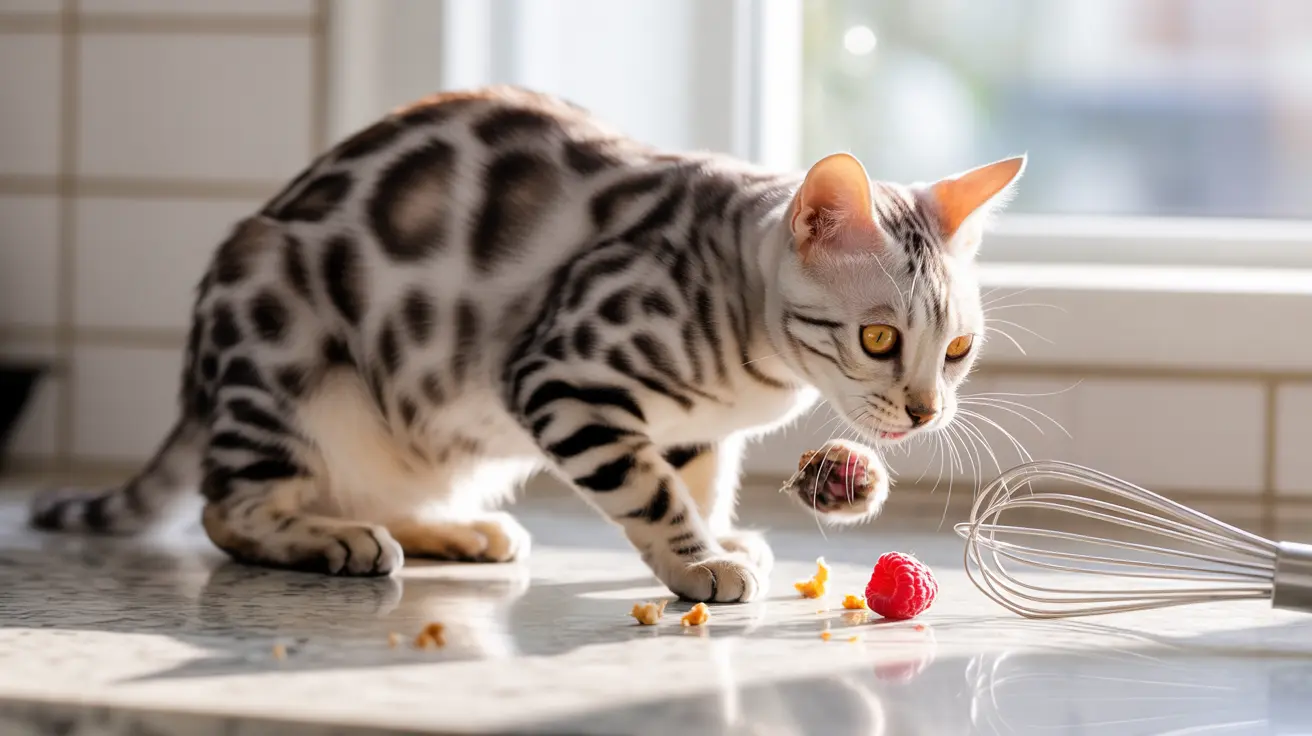As cat owners become more conscious about their pets' nutrition, questions about sharing human foods with felines often arise. One common query is whether cats can safely consume raspberries. This comprehensive guide will explore the safety, benefits, and potential risks of feeding raspberries to your feline companion.
While cats are obligate carnivores who primarily need meat-based proteins, raspberries are non-toxic to cats and can be offered as an occasional treat. However, there are important considerations regarding portion size, preparation, and potential health impacts that every cat owner should understand.
Safety and Nutritional Value of Raspberries for Cats
Raspberries contain several beneficial nutrients, including vitamins A, C, E, and K, along with minerals like manganese and potassium. They're also rich in antioxidants that can help combat inflammation. However, cats' digestive systems aren't designed to process plant matter efficiently, which limits the actual nutritional benefits they can derive from these fruits.
The high water content (approximately 85%) in raspberries can contribute to hydration, but this benefit is minimal given the small portions cats should consume.
Potential Risks and Concerns
While raspberries are non-toxic, several risks deserve attention:
- High fiber content can cause digestive upset
- Natural sugar content may contribute to weight gain
- Small amounts of xylitol present could be harmful in large quantities
- Possible choking hazards if not properly prepared
Safe Serving Guidelines
When offering raspberries to your cat, follow these essential guidelines:
- Limit portions to 1-2 small pieces per serving
- Offer no more than once or twice per week
- Thoroughly wash fresh raspberries
- Cut into small, manageable pieces
- Monitor your cat for any adverse reactions
Understanding Your Cat's Response
Most cats show limited interest in raspberries due to their inability to taste sweetness. If your cat does show interest, it's likely due to the texture or aroma rather than the taste. Some cats may play with the berry rather than eat it, which is perfectly normal behavior.
When to Avoid Raspberries
Certain cats should not be given raspberries, including:
- Cats with diabetes or weight issues
- Those with sensitive digestive systems
- Cats with known food allergies
- Cats on specific medical diets
Frequently Asked Questions
Can cats eat raspberries safely as a regular treat?
While raspberries are non-toxic to cats, they should not be given as a regular treat. Limit servings to once or twice per week, offering only 1-2 small pieces at a time.
How many raspberries can I give my cat in one sitting?
Only offer 1-2 small pieces of raspberry per serving. Any more could lead to digestive issues or other health concerns.
What are the potential health risks of feeding raspberries to cats?
The main risks include digestive upset, diarrhea, vomiting, and potential weight gain from excess sugar. There's also a minimal risk from naturally occurring xylitol.
Why should cats not be fed raspberries as a main part of their diet?
Cats are obligate carnivores who require meat-based proteins. Their digestive systems aren't designed to process plant matter efficiently, making raspberries nutritionally insufficient as a significant dietary component.
How do I introduce raspberries to my cat's diet without causing digestive issues?
Start with a tiny piece of raspberry and monitor your cat for 24 hours for any adverse reactions. If no issues occur, you can occasionally offer small amounts as a treat, but never make it a regular part of their diet.
Conclusion
While cats can safely eat raspberries in very small amounts, they should never be considered a dietary staple. Focus on providing your cat with a balanced, meat-based diet, and consult with your veterinarian before introducing any new foods to their diet. If you choose to offer raspberries as an occasional treat, do so sparingly and monitor your cat carefully for any adverse reactions.






